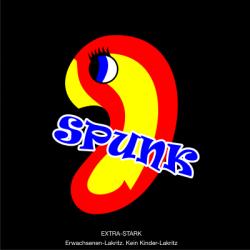As 2009 drew to a close, Grapevine flipped through its stuffed contacts list and sent out a bunch of e-mails, made a bunch of calls, to people we thought could provide us with an interesting take on 2009—what they learned, what happened, why, when, where and how? And how.
We gave those folks free reign, pretty much, inviting our correspondents to talk about what they wanted. We imagined all these good folks put together might help us learn what it meant to be an Icelander in 2009; reading through the results, we can’t help but agree with ourselves. There are some pretty hefty, eye-opening thoughts expressed right here.
Some people wrote us long letters (such contributions can be identified by a cool looking envelope-symbol), and some of them we called and sorta interrogated on what they had to say (these are marked with an old-school telephone image). All of them had interesting things to say about the year 2009 and the community we inhabit, whether they amount to complaints, condemnations, revelations or (in at least one case) exonerations.
Not all of the people we contacted responded, and not all of those who responded were willing to share their thoughts (we are especially annoyed that so few of our female friends were up for the task—it feels kinda shitty to present the year from a mostly male perspective). Nevertheless, we feel that the following commentary combines to provide a unique perspective on the messy year we just left behind, and what may lie ahead. Enjoy!
Andri Snær Magnason, Writer: On The Brink Of Something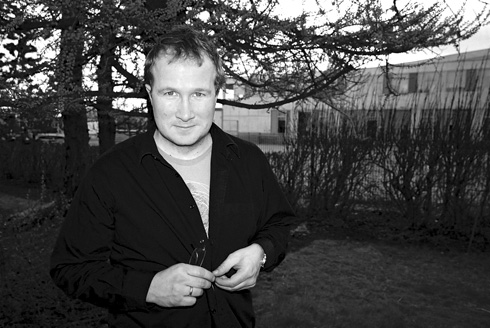
A lot of people had expectations that we would see new political parties or MPs that would be different; there were expectations of an immediate revolution in our mindset, that all of the sudden we would see a new humanity, free from corruption, partisanism and political cliques. This did not happen.
In many ways, 2009 was still an interesting year. People were very open to ideas and the National Assembly of November, which the media tried to talk down as if it intended to present a plan to right everything, instead of accepting its findings as a gift or a contribution to our discourse, which it was.
Through Silfur Egils we heard a lot of people that offered solutions, words of warning or prophecies. “If you do this, you will go bankrupt and Iceland will be a pariah nation, if you do the exact opposite you will go immediately bankrupt… “
With dramatic outcries like that on both sides, it became hard for the public to sense what really mattered. This is among the reasons why big and important issues that one would have liked to participate in and debate, like Icesave and so many others, wound up in firmly in party lines and died there. The dualistic form every issue was forced into made it impossible for the public that will be affected by them to participate.
On the other hand, this was maybe the year of the virtual kreppa. Just as the bubble that preceded the collapse had grown immense, the kreppa sort of grew into its own bubble. It wasn’t nearly as grave as the international media and many locals depicted it to be. Our birth rates went up, while mortality rates stood still—in the scope of human history it is unusual that such a period is thought of as one of hardship.
We are still on the brink of something, though. If the kreppa reached a low point in 2009, it wasn’t a kreppa strictly speaking, rather an important change. But time will tell.
Right now we are experiencing a lot of impatience regarding political transformation, and I think a lot of it has unrealistic grounds. Such transformations happen over decades, time has told.
There are positive aspects that raise my hopes. We can observe some tightly knit grassroots foundation being formed; Datamarket is proposing principles of public transparency and the National Assembly calls for a more active and direct democracy. Regardless of how these experiments fare in the long run, we can still see a large base of grassroots operators forming, one that has been shaping up over the last decade.
You could say that in certain ways the situation now is akin to that of 1809, when Jörundur Hundadagakonungur [“The dog days king”] arrived in Iceland and gave Icelanders the gift of freedom, something that everyone should have been rather pleased with. He offered freedom and a draft that said every man was equal. His message was immensely radical for the times, even more radical than the French Revolution. It appealed to the 90% of the country that were devoid of property, living in poverty. Yet the people laughed at his advances. “What does he mean, all men are equal?”
At that time, our officials said that no true Icelander desired independence. Jón Sigurðsson was but a baby, as was the Icelandic independence movement.
It seems we are going through the same course of events now. We’ve seen the pinstripe suited men in their Range Rovers run everything into the ground, still a lot of us feel that companies should be run by exactly these men, as if they are somehow—despite what experience has taught us—the best at running companies? It doesn’t matter a thing that they are responsible for some of the biggest failures in human history.
It took Icelanders a hundred years to realise they wanted freedom. One hundred years of poems and resolutions and articles to understand that a poor man should have the same power to vote as the rich man. I hope our current shift in attitude doesn’t take a hundred years, but the situation now is similar to what it was in the beginning of the 19th century. Our whole system came crashing into the arms of the state, and it was suddenly the nation’s task to decide what to do with it. But before people realised what had happened, they grew upset with all this new power and decided they didn’t want it, that it was communistic of them to have all these powers. Thus it was deemed the best solution to write off the debt and hand the power again to the men and their Range Rovers.
2009 was thus the year that the people received all the power but didn’t want it, didn’t know to use the opportunity to do something historic—to handle things differently—the political class couldn’t muster up the energy to do something idealistic, because they were just focusing on clearing the rubble.
What really happened last year, then, was that every large business in the country fell into the hands of the banks, who in turn were turned over to the state. We could have experimented, tried new things; we could have thrown a national assembly on how to run these businesses, and where they went wrong in the first place, we could have decided how to run our society. But no such idea was entertained. ASÍ [Icelandic Confederation of Labour] rather wanted a new aluminium smelter and entered into an agreement with the people that caused all the chaos, the neo-libertarian advocates of SA [Confederation of Icelandic Employers].
From this perspective, 2009 was clearly a year of disappointment. We have a labour movement that has no ideological imagination or vision. They prefer focusing on unemployment rates—as if Iceland were a chicken farm, not a community—measuring our productivity in tonnes while ignoring the ideologies and methods that caused those unemployment rates. They are prepared to hand over our resources to reckless people, as long as a thousand workers can get short-term employment. They may have temporary success in creating jobs, but if they do not change their modes of thinking we are destined to go full circle, while losing our natural resources and along with them, our future employment opportunities.
Basic statistics tell us this: we bring ashore 1–1.5% of all fish that is caught in the world. This alone should be enough to comfortably sustain a nation of 300.000. We play a very large part in feeding the world, and doing it well is a big and important task. We welcome more tourists per person per year than most nations in the world, and that alone should go a long way towards sustaining our society. We produce five times more energy per person than most of our neighbouring countries—again, that alone should comfortably sustain us, yet we still manage to mess it up.
However, if we don’t squander away all of these posts, we should be able to recover from our current problems relatively fast.
Haukur Már Helgason: The score of 2009
Prestissimo
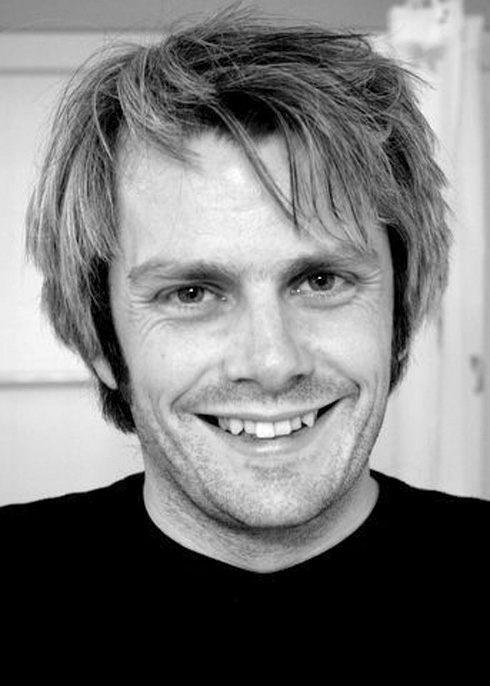 “Andóf” is Icelandic for resistance. As so much of Icelandic’s abstract vocabulary, it originates among seafarers. Once an open boat had arrived at its destination on open sea, and the sailors had laid their lines, two men in back kept rowing against the stream to keep the boat put. Thus andóf is not meant to change a situation, but to work against a current for the sake of the status quo.
“Andóf” is Icelandic for resistance. As so much of Icelandic’s abstract vocabulary, it originates among seafarers. Once an open boat had arrived at its destination on open sea, and the sailors had laid their lines, two men in back kept rowing against the stream to keep the boat put. Thus andóf is not meant to change a situation, but to work against a current for the sake of the status quo.
Most of last winter’s andófsmenn may not have wanted to simply support the status quo with their action, but that may be all the movement did. Effectively, the protest movement’s demand now seems to have been: Stop us or we might do something. And the state obeyed, did what it could to hold back a people scared of its own potential and called an election.
Through a change in government, the republic held. So far, no constitutional convention has been announced. The new government is making some left-wing amendments, reinforcing taxes on wealth that were abolished to make Iceland a ‘capitalist’s paradise’ as one banker phrased it in his recent memoirs. Fundamentally, though, everything remains the same: As soon as the banks, nationalised in autumn 2008, had been relieved of their losses, the socialists re-privatised the profitable parts of their business—swiftly, even without hesitation. As 70% of Icelandic business is de facto bankrupt, this means that private interest will determine their fate, and not public interest—they are already beyond political debate.
Adagio
Total national debt amounts to €28 billion. This is not incomprehensible, you only have to divide with the population to realise the meaning of the figure: one way or another each of the country’s 300 some thousand inhabitants must donate € 96 thousand worth to pay these debts. Of these, € 37 thousand will be collected from each by the state, through taxation, cuts in services and other measures, while the rest will be privately collected, through higher prices, lower wages—any means of exploitation will do. In a country with no tradition of sacrificial ceremonies, co-dependency with the debt holders is likely to become a silent, shameful part of everyday existence, breeding contempt and resentment.
Financial minister Steingrímur J. Sigfússon may very well be right that ‘Iceland will get out of this,’ thanks to what is often mislabelled as ‘hard work morals’ but is better described as a tradition of obedience. Whereas the right wing employs analogies with seafaring, Sigfússon refers to farming: the farmers thought they could spend their days on the town! There exists another left, which never adhered to the cause of making everyone a worker, but in freedom, as the opposite of forced labour. There also exist honest people in the right-wing constituency who really thought that capitalism meant hard work would bring rewards. Both groups are now disillusioned to the point of apathy. At the end of a messy year, in a heap of stale words, this one thing remains clear: no matter who is in charge, a great number of Iceland’s inhabitants will be considerably less free to choose what to do with their time for at least the next decade or two, than they would have been if that psychotic monster neoliberalism hadn’t run amok.
Rubato
It was not the collapse that was catastrophic, but the build-up and the blindness. A country blindly adhered to the outrageous dogma that if money only had its way, good things would follow. Whatever would not come about through sheer monetary magic would then be taken care of by the inherent greatness of Icelanders, by way of racial magic. The economic collapse merely unveiled the scale of the intended exploitation.
Protestors stood up to the shame of the past decade and helped cover up the gap of impossibility by bringing about an election. Through a quixotic effort the andófsmenn kept the island in place. As acceptance sets in and words lose their effectiveness, the voluntary leaders of last winter’s uprising turn into nagging eccentrics again. The new captain’s promises to distribute the rowing demanded from each fairly, according capabilities. To make new oars for those who have none. That the sailors will be kept alive and breeding. That their offspring will be nurtured and taught to row as well. And so, those with oars keep on rowing, rattling their oars to celebrate the New Year beneath fireworks in the fog. An Icesave approaches on larboard, please steer past it, will you …
What else happened in 2009? Michael Jackson died. His Neverland ranch was dissolved and auctioned, too.
Valur Gunnarsson, Journalist/Writer: 2009: The Year of Revolution
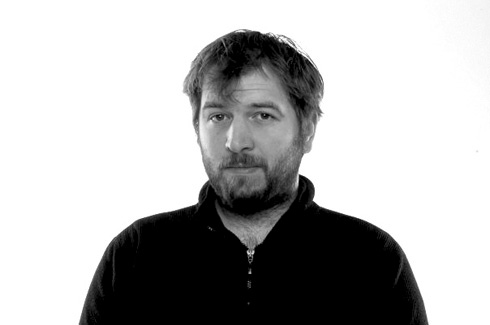 Ol’ Karl Marx said that history always repeats itself; the first time as tragedy, the second time as farce. Commentators particularly loved repeating that phrase after the collapse of the Soviet Union. But this is Iceland. We do things differently.
Ol’ Karl Marx said that history always repeats itself; the first time as tragedy, the second time as farce. Commentators particularly loved repeating that phrase after the collapse of the Soviet Union. But this is Iceland. We do things differently.
Previously, the only event in Icelandic history to be called a revolution took place in the summer of 1809. An English soap salesman and a Danish adventurer named Jorgen Jorgensen came ashore in the midst of the Napoleonic Wars, took over the undefended island and announced that Iceland was now free and independent and a national flag showing three fish on a blue field would be introduced along with human rights and such. They were soon escorted away by the Royal Navy and Jorgen was called the “Dog Day King” by bemused locals in honour of his roughly two months in office. Over a century later, the event was turned into a stage farce by Jónas Árnason.
The revolution of 2009 certainly had its farcical elements (singing, dancing, everything said by ex-PM Geir Haarde). But in the background was a national tragedy, eighteen years of economic mismanagement by the Independence Party which led to the economic collapse of 2008.
After the Revolution
Were the events of January 2009 a true revolution? Iceland seems, despite everything, to have been pretty responsibly run for the past year, which is in itself revolutionary. However, no one is happy with the outcome. Inevitably, the Independence Party now blames the ruling Left Coalition for the effects of the economic collapse, conveniently forgetting that the whole disaster happened on their watch. Now taxes must be raised and public spending cut down. Everyone from sailors to filmmakers, parents to seniors, denounce the government as each group must in turn suffer cuts, blaming the one pulling the trigger rather than the one who loaded and aimed the gun.
Many of the leading protesters of January have already left the country while the main architect of the collapse, former PM Davíð Oddsson, is busy rewriting history as the new editor of Morgunblaðið. The same people who bankrupted the country are still largely in charge of their indebted business empires. On the face of it, little has changed.
The Rainbow Revolution
And yet, something did happen in January 2009. Not quite like Red October 1917 or the first Bastille Day in 1789, but something of consequence nonetheless. Perhaps it can best be compared to the colour-coded revolutions in Eastern Europe, where people rose peacefully to eject elected leaders who were doing the country harm and could not be gotten rid of in any other way.
The people of Iceland showed, for once, that they could and would take matters into their own hands. Everything that has happened since has been a direct consequence of January. The election of a new Icelandic government last spring, following Obama’s oath of office on the very day the Icelandic Revolution started, inspired hope of a brave new world for many.
Then, everything got bogged down. Over here it was Icesave, whereas Obama has had to spend most of his time arguing with reluctant countrymen about the benefits of health care rather than changing the world with broad strokes.
The Big Squeeze
By December, the beacons of hope that were lit (and frequently extinguished by police) on Austurvöllur last January had grown ever dimmer. The biggest surprise of the aftermath of the revolution was not that people felt let down. Expectations are raised and not everything can be changed overnight. Nor was it all that surprising that the Independence Party has largely succeeded in rewriting history to their own benefit. As the name implies, this is precisely what they do best. No, the biggest surprise came in the run up to Christmas, when shopping seemed as busy as ever. With prices at a record high, rising unemployment, tax increases and wage cuts, this should be the most expensive Christmas yet for punters.
But that did not deter them. Even before the collapse, Icelanders had to pay more than anyone else for most products, and yet its consumerism was unparalleled. Now they have to pay even more. With longer working hours than most countries, I had always assumed that Icelanders were being squeezed to the limit. It must have come as a pleasant surprise to the happy few who control the monopolies to see their countrymen can be squeezed quite a bit more. Longer hours, worse pay, pricier products. This is the promise of a new year.
It’s going to be a cold January once the credit card bills start coming in. Hopefully, things will heat up a bit in February, when the long promised report on the reasons for the crises is due to be published. That might not only be the fulfilment of the hopes of January 2009, but also the nation’s last hope for justice.
If this too fails to deliver, we can expect stories set in our times to be more tragic than farcical.
Örvar Þóreyjarson Smárason, Musician / Poet
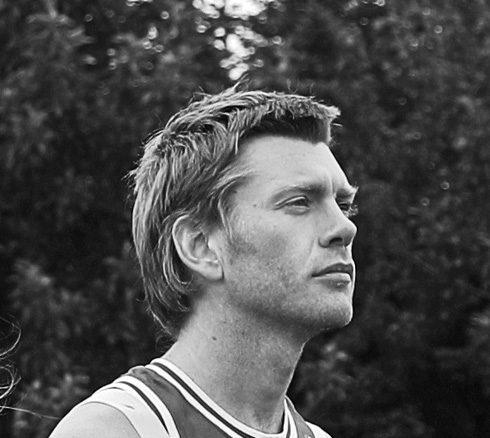 A year that began with a strange sense of hope, almost like a twisted wet dream, gradually but with steady acceleration descended into a dark wet hole (I won’t say abyss)—a suffocating mud-bath. And like an amateur magician, the horse-traders of the Icelandic clan-system clumsily, but with good success, diverted our eyes from the things that mattered: the new constitution and the much needed drastic re-thinking of, well…. pretty much everything.
A year that began with a strange sense of hope, almost like a twisted wet dream, gradually but with steady acceleration descended into a dark wet hole (I won’t say abyss)—a suffocating mud-bath. And like an amateur magician, the horse-traders of the Icelandic clan-system clumsily, but with good success, diverted our eyes from the things that mattered: the new constitution and the much needed drastic re-thinking of, well…. pretty much everything.
Yes, January was a trip-and-a-half, but today it seems as far away as the glow of childhood Christmas. But out of the mundane things that stand out for me from the year that followed are first of all the total lack of changes in the Icelandic government’s policies on social issues such as immigration and environmental issues, despite giving of the illusion of a left-wing/greenish coalition.
The unbreakable suction that Iceland seems to have to the IMF’s nips is a mystery of nature, especially since the fund has started to act like an apathetic hamster mother getting ready to ready to eat it’s squiggly pink young, because it’s easier than ignoring it.
Another point of hot-pot chitchat has been Ingibjörg Sólrún Gísladóttir’s fall from grace, which has been a particularly strange spectacle. Within a few moments she went from being the great future hope of the ever-blue eyed Social Democrats to something resembling a raving hermit.
And in the spirit of the traditional hot-pot banter I’m going to pretend that Davíð Oddsson’s muscle flexing as editor of Morgunblaðið and the collapse of Borgarahreyfingin were not unexpected (but I won’t spend words on Icerave, other than the fact that it is a hugely underrated compilation of the best Icelandic rave, hardcore and dance music of 1992).
Sadly, these are the things that come to mind when scrolling over the year. Dreaming on a fluffy cloud of teargas made me complacent; instead of a constitution we got constipation and even though I would never have believed it at the time, January with its sweet smell of expectancy, unmitigated energy and the deafening clattering of pots and pans now seems like a fairy tale or some 60s myth.
Þorvaldur Gylfason, Professor, Economics: 2009 – Highs and Lows
2009 ended less well than it began. At the beginning of the year there were realistic hopes that Iceland  could, with a little help from its friends, pull itself rather quickly and painlessly out of the crisis triggered by the collapse of the banks the year before. The application for EU membership in mid-year signalled that Parliament was at last willing to try to clean up its act by proposing to submit to the discipline required of EU members. Apparently, however, the government mistook the IMF’s willingness to go along with a postponement until 2010 of tough spending cuts and tax hikes for a sign that the crisis was perhaps not as deep as was feared at first. The government allowed the reconstruction of the failed banks to drag on. The pointless and protracted squabbling in Parliament on the Icesave deal with the UK and the Netherlands derailed necessary reforms. The delays have practical consequences. For one thing, the relaxation of the stringent capital controls that were promised to be temporary has been put on ice with no relief in sight.
could, with a little help from its friends, pull itself rather quickly and painlessly out of the crisis triggered by the collapse of the banks the year before. The application for EU membership in mid-year signalled that Parliament was at last willing to try to clean up its act by proposing to submit to the discipline required of EU members. Apparently, however, the government mistook the IMF’s willingness to go along with a postponement until 2010 of tough spending cuts and tax hikes for a sign that the crisis was perhaps not as deep as was feared at first. The government allowed the reconstruction of the failed banks to drag on. The pointless and protracted squabbling in Parliament on the Icesave deal with the UK and the Netherlands derailed necessary reforms. The delays have practical consequences. For one thing, the relaxation of the stringent capital controls that were promised to be temporary has been put on ice with no relief in sight.
For the most part of 2009, the reconstruction program supported by the IMF, the Nordic countries, Poland, and the EU was held hostage by an incompetent and corrupt political class which, as the National Audit Office disclosed just before the year ended, had received huge chunks of money from the failed banks and other, in many cases undisclosed, sources. The year ended in eerie uncertainty about whether the President would sign the IceSave bill or not. If he doesn’t, expect a bumpy ride ahead.
Aftaka, Anarchist Collective / Organisation
 The economic collapse entailed a rebellion that reached its peak in January and brought the authorities a fear of losing power. It brought the confused public a fear of full-scale riots and chaos. It brought the police a fear of losing control of the situation. It brought the right-wing a needless fear of fundamental changes, but brought the left-wing a hopeless hope for fundamental changes. To us—who never shouted “Unfit Government!” rather “Lethal Government” (by that meaning all governments)—it brought a timely smile, a hateful grin and the tiniest fighting chance for decent confrontation.
The economic collapse entailed a rebellion that reached its peak in January and brought the authorities a fear of losing power. It brought the confused public a fear of full-scale riots and chaos. It brought the police a fear of losing control of the situation. It brought the right-wing a needless fear of fundamental changes, but brought the left-wing a hopeless hope for fundamental changes. To us—who never shouted “Unfit Government!” rather “Lethal Government” (by that meaning all governments)—it brought a timely smile, a hateful grin and the tiniest fighting chance for decent confrontation.
The elections in the spring managed to kill a part of the rebellion, at least for a while. But certainly not all of the resistance was pacified and a lot of the collapse’s and rebellion’s results come up in our mind when we reflect on the year of 2009. We could mention the squatting of Vatnsstígur 4, the voting booth shitter and the forceful protests against the government’s refugee policies, the systematic attacks on the property of business people and politicians, the ever-worsening financial situation of energy and aluminium companies, and indoor conflicts between the police and the authorities. And all the analysis and critique that has gone on since the collapse. We could mention all possible symptoms of the worsening status of the predominant system, ideological as well as practical.
But what clearly sticks out is the left-wing government’s exposure of its own nature. And not the nature of left-wing governments but the violent nature of all authorities. Its work and behaviour so far have proved the theory stating that it does not matter what political party one votes for, the government always wins. It warms up our heartstrings to hear people who are unfamiliar with us cursing all possible forms of authority. It is a sign proving what our struggle has accomplished, and that if those in power continue their business-as-usual, it is not so unlikely that decent and militant confrontation will occur sooner or later—here on this island of forced pacifism.
Like Chumbawamba said: “Nothing ever burns down by itself / every fire needs a little bit of help.”
Ari Eldjárn, Comedian/Copywriter: 2007 Wasn’t Such A Bad Year
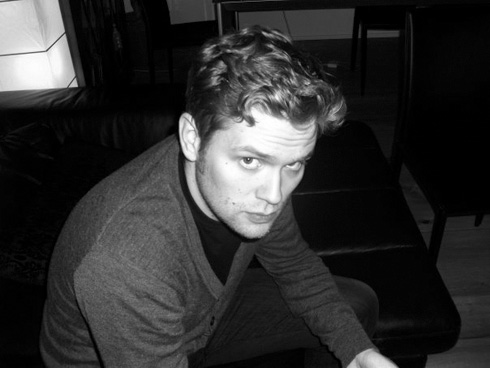 Icelanders’ national identity changed a lot in 2009. It was the year Icelanders went from craving the outside world’s attention to getting hugely worried about outside attention. This was the year that concepts like “the international community” suddenly became known—I don’t remember hearing that one before, and it has never meant a thing to me. It was the year that our national identity shifted completely and went upside down—from “Iceland, best in the world,” to “Iceland, barest in the world”
Icelanders’ national identity changed a lot in 2009. It was the year Icelanders went from craving the outside world’s attention to getting hugely worried about outside attention. This was the year that concepts like “the international community” suddenly became known—I don’t remember hearing that one before, and it has never meant a thing to me. It was the year that our national identity shifted completely and went upside down—from “Iceland, best in the world,” to “Iceland, barest in the world”
I am unsure how it can be summed up in a word. Until now, the best thing Icelanders knew was when they were mentioned in the international press. 2009 was the year Icelanders really started worrying about bad press. It’s a key factor behind most of what’s been discussed this year. Everyone keeps saying the same thing; they say we’re out of touch with the outside world, “the international community”… it’s like a new motto. Few people realise what being in a community with other nations entails, really, but now no one knows where we stand, in regards to Scandinavia or the whole outside world.
It was a year of great distrust. The entire nation grew tremendously sceptical towards each other. Still, not a lot seems to have changed. I hear Christmas shopping didn’t go down at all this year and is pretty much the same as in 2007. But the discourse changed a whole lot.
Lastly, I would like to note that I don’t think 2007 was such a bad year at all. It’s like we decided in 2009 that 2007 was a sort of ground zero for our woes; we keep bringing it up, comparing everything to it, using it as a curse word. “The year we all went mad.” I really don’t think it was that bad a year for regular people. They don’t need to worry about having bought too much stuff then or whatnot. I really don’t think anyone did.
Dr. Gunni, Journalist/Musician: Bored Of Being An Icelander
 One maybe expected some change, as there was a revolution in Iceland. In retrospect it maybe wasn’t anything. The Independence Party left office and the Left-Greens come instead, then everyone stopped being angry. Nothing happened. Then we humped on Icesave for around ten months, so you really just stopped following the news or expecting anything. Right now I hope that the Icesave bill gets vetoed and Europe goes crazy, invades Iceland and takes over. I have grown bored of being an Icelander; maybe it’s fine to just call the whole thing off.
One maybe expected some change, as there was a revolution in Iceland. In retrospect it maybe wasn’t anything. The Independence Party left office and the Left-Greens come instead, then everyone stopped being angry. Nothing happened. Then we humped on Icesave for around ten months, so you really just stopped following the news or expecting anything. Right now I hope that the Icesave bill gets vetoed and Europe goes crazy, invades Iceland and takes over. I have grown bored of being an Icelander; maybe it’s fine to just call the whole thing off.
Everything has just been kind of ridiculous. You would have thought that in a situation such as this one everyone could just unite in rowing our little boat to safe shores. Instead, everyone continues paddling their own pathetic little cause, so our boat just goes in circles and the whole nation gets seasick.
To retain your sanity you turn off all the media—radio, TV, internet—everything. And when you dare turn it back on and they start yapping on about Icesave you’ll turn to the zombie-pop station and listen to Lady GaGa.
It was easy being angry at the Independence Party. All of the major players from the collapse are rooted there, and you really want to kick their arses. Now they are back with their yapping and expect us to believe everything will be totally great if we just hand the reigns back to them. So I don’t know. Mainly, I’m tired.
Looking back to January of 2009, when the shit hit the fan and everything was happening, those were some spirited times. I read over what I wrote back then—I blogged like a maniac. I blogged about New Iceland and exciting new ways of doing things and blah blah blah… then reality took over, the cold, dark Icelandic winter and Christmas stress and somehow… let’s just say I’m glad the year is over. The whole of it went towards this Icesave bullshit, which is only really the tip of this whole iceberg. Everyone just keeps going crazy over everything without us ever reaching any sort of conclusion.
You could add that I’ve wanted to somewhat blindly stand behind [Minister of Finance, head of the Left-Green party] Steingrímur J. Sigfússon and back him up. I still haven’t lost faith that he knows what he’s doing. He isn’t the one that sank the boat, and he seems keen on
rowing forward.
Dóri DNA, Student / Rapper / Comedian: The Same Kickbacks & Knickknacks
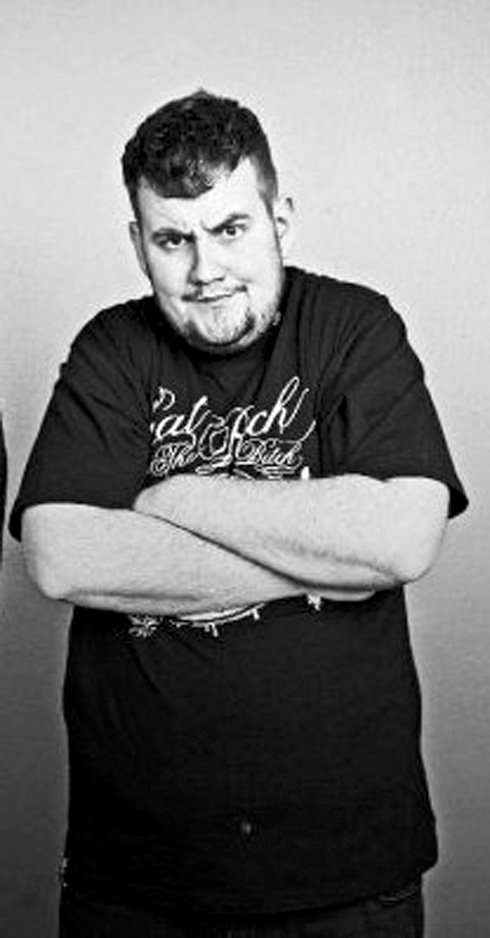 I learned this year that money is a joke and if you have it, you should spend it immediately.
I learned this year that money is a joke and if you have it, you should spend it immediately.
Was I surprised by anything? Yes, how forgetful Icelanders are. The whole hate-song Icelanders sang in front of Parliament was forgotten and suddenly it was alright to have Davíð Oddsson editing the most prestigious newspaper and all of the sudden we have people claiming that “finally the right person is manning the decks,” while we were very evidently making fools of ourselves globally.
I was surprised that partisan party politics could prevail in a crisis like this, and that everyone has a gleam in their eyes and wants to better position when it’s evident that a national government of all parties working towards the same goals must be formed. Everyone knows that if we could just agree on some very basic things, we could ride out smoothly. I am surprised that people are so intent on maintaining the party lines and the party system.
The politician of 2009 is clearly Minister of Finance Steingrímur J. Sigfússon. He took on the hardest and worst government post there is and is daily subject to a shitstorm of allegations and accusations, yet manages to stand firm while doing a good job. We still need a leader, someone that will talk courage into the people, and I am not talking about a master of rhetoric here. Someone with novel, forward thinking ideas, ambition and charisma. Someone that can get the people behind him, and to realise what they truly want. And one thing’s for certain, it ain’t [Independence Party chairman] Bjarni Benediktsson.
As for our generation, we’ve done nothing. We’ve been spectators to this spectacle, maybe banging on pots and pans to express our rage, but that’s the extent of it. Our generation has no representative or proponent anywhere in the nation’s power structure. Oh, there are young politicians, but they somehow manage to be and act older than the oldest of the old politicians. How I look forward to the day when our generation can step up with its voice—not the one spoon-fed to it from birth, but the one it has been slowly developing over the years. Legalising cannabis, looking forward, thinking forward—open, not closed.
Hopefully, this generation will step out of the current ruins of Iceland. We maybe have two terms left of the rotted woollen socks of the old generations. But who knows. Maybe our ideals will fall flat and we will all fall into the same old partisan party politics that have plagued Iceland for decades. The same old arguments, the same kickbacks and knickknacks. I still maintain a hope that from the rubble of this mess we’re living through a voice of a new generation will sound, clear and strong. It can happen.
Þórður Snær Júlíusson, Journalist: An Invitation To Historical Forgery
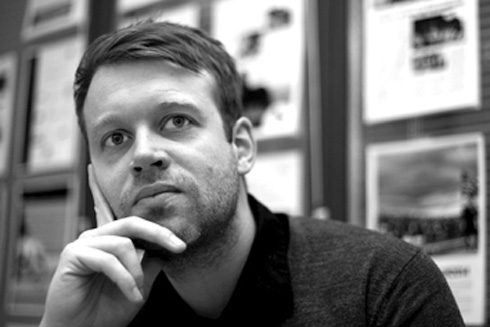 The first thing that comes to mind about 2009, as a sort of milestone event for the year, is the hiring of Davíð Oddsson as editor for Morgunblaðið. It can reasonably be likened to a bankster being appointed to the Supreme Court to rule on his own case. Fittingly, the historical analyses that have been appearing in Morgunblaðið over the past few months seem to be put forth by a man that has a great interest in how history is written, and that it will be written a certain way— entirely ignoring on how far from reality those writings are.
The first thing that comes to mind about 2009, as a sort of milestone event for the year, is the hiring of Davíð Oddsson as editor for Morgunblaðið. It can reasonably be likened to a bankster being appointed to the Supreme Court to rule on his own case. Fittingly, the historical analyses that have been appearing in Morgunblaðið over the past few months seem to be put forth by a man that has a great interest in how history is written, and that it will be written a certain way— entirely ignoring on how far from reality those writings are.
Aside from that, Davíð has never worked a real job in the media, and thus has neither the knowledge nor the experience to lead any part of it. It is unfair to the journalists of Morgunblaðið to work under a man that knows the answers to most of their questions, but neither can nor will answer them. As a former employee of Morgunblaðið I find it very sad to witness how the newspaper has evolved over the past few months, and the circumstances its able professionals are forced to work in. Alas, private companies can hire whomever they want to hire.
Another great point of interest is the information we obtained on how insurance company Sjóvá was handled. Its former owners seem to have treated the company like a piggy bank; one they eventually found new use for as a garbage bin once it was all emptied out. The results were that the state had to supply Sjóvá with 16 billion ISK. That is an incredibly high amount when you consider the fact that their claims reserve fund once amounted to around 22–23 billion ISK. They nearly managed to empty it. Investor group Milestone, who owned Sjóvá for two years, managed to increase the company’s debt by 40 billion ISK in that time. During these two years, the shameless owners didn’t hesitate to reimburse themselves 19 billion ISK in dividends. The investigation in Sjóvá’s affairs and the Special Prosecutor’s raid on their premises last summer are thus clearly one of the year’s main events.
Lastly, I would like to mention the bankruptcy of DeCODE Genetics in November as a very memorable event, especially in a historical context. When DeCODE stock went up for bids on the so-called Grey Market around a decade ago, it marked the start of the Icelandic public’s first stock trading-gold digging adventure. Respected people appeared in the media telling people that not buying DeCODE stock would be a grave mistake. Likely, no Icelandic government in history has gone as far for any company as the one that ensured DeCODE exclusive permits to a database made up of the nation’s collective medical histories—adding to that a $ 200 million state guarantee. Even though both the database and the state guarantee eventually fell through, the state’s promise of both ensured DeCODE’s then VP, the young business-hero Hannes Smárason, was able to register the company to the US NASDAQ-market. DeCODE is to this day the only Icelandic company that has been listed there. As trading commenced, their stock was valued at $ 30, but quickly plummeted to next to nothing. For the past few seasons, they were valued well under a dollar.
Íris Erlingsdóttir, Journalist/Writer: The Humbling of Iceland
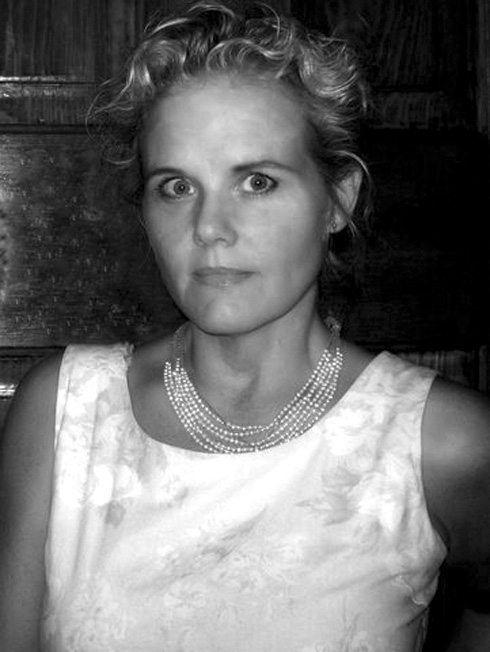 In 2009, Iceland became the poster child of the global economic downturn. The precipitous collapse of Iceland’s banks and the ensuing popular overthrow of the Independence Party-led government were seen as possible precursors of the fall of Western civilization.
In 2009, Iceland became the poster child of the global economic downturn. The precipitous collapse of Iceland’s banks and the ensuing popular overthrow of the Independence Party-led government were seen as possible precursors of the fall of Western civilization.
Fortunately, the situation in Iceland (and elsewhere) has stabilized—at least for now—and already we are forgetting what exactly led to the kreppa in the first place. Was it the result of fraudulent investment schemes created by foreign flim-flam artists like Bernie Madoff? George Bush’s fiscal irresponsibility? Hank Paulson’s decision not to rescue Lehman Brothers? The market’s irrational exuberance?
Certainly not the policies of Iceland’s Central Bank by Davíð Oddsson, the harebrained business practices of the New Viking raiders, the complete failure of Icelandic regulators, the government’s incompetence, or the absence of sound lending guidelines at the banks. And certainly not the system of nepotism, cronyism, and political patronage that came to define the business atmosphere in Iceland.
As a result of this collective amnesia, we are already seeing the rats emerge from their holes to point the finger at those who have been stuck with the task of cleaning up their mess. Oddsson is back in the public eye as the editor-in-chief of Morgunblaðið. The Independence Party is again polling as the country’s most popular political party. Kaupþing refuses to permit outsiders to take over the business empire of Jón Ásgeir Jóhannesson. The banks are still run by much the same people who caused this mess in the first place.
The cockiness that characterised Icelanders during the good times has been replaced by anger, more directed at the post-party cleaning crews than the political and financial “elite” whose reckless actions have seriously compromised Iceland’s sovereignty.
The world has changed, however. The cockiness that characterised Icelanders during the good times is gone. Iceland’s sovereignty has been compromised as a result of the reckless actions of this “elite.” I am not referring to the movement to have Iceland join the European Union. I am referring to the fact that the positions of authority and nearly all of Iceland’s treasures have been—or soon will be—handed over to foreigners.
The International Monetary Fund (IMF) has been placed in charge of restructuring of Iceland’s economy. The investigation of the financial crimes that led to the kreppa is led by Eva Joly, a Norwegian-French politician. The genetic research firm deCODE—which was probably the best known Icelandic company abroad—was sold in bankruptcy liquidation proceedings to a consortium of American investment funds. The right to exploit geothermal energy in Reykjanes was sold for a pittance to a Canadian company.
Despite all of this, however, there are hopeful signs. The kreppa has given rise to a truly independent media—from the website Eyjan to bloggers such as Daði Rafnsson‘s Economic Disaster Area, and Lára Hanna Einarsdóttir—to challenge the privileged class monopoly on the news. A new political party obtained seats in the Alþingi. A national assembly (Þjóðfundur) was held to try to reach a consensus on how to rebuild our broken society. The Icelandic people have refused to allow the British and Dutch governments to force them to pay for the sins and omissions of the bankers and their own regulators. The outflow of workers had stopped, for the most part, and the unemployment rate is slowly descending. The first prosecutions appear imminent.
Now that the crazy days of the 00’s appear to be behind us, we have an unprecedented opportunity to redefine ourselves. We’ve been humbled in 2009, but it’s still not clear whether we learned our lesson.
Pawel Bartozsek, Mathematician / Teacher at Reykjavík University: Not A Lot To Celebrate
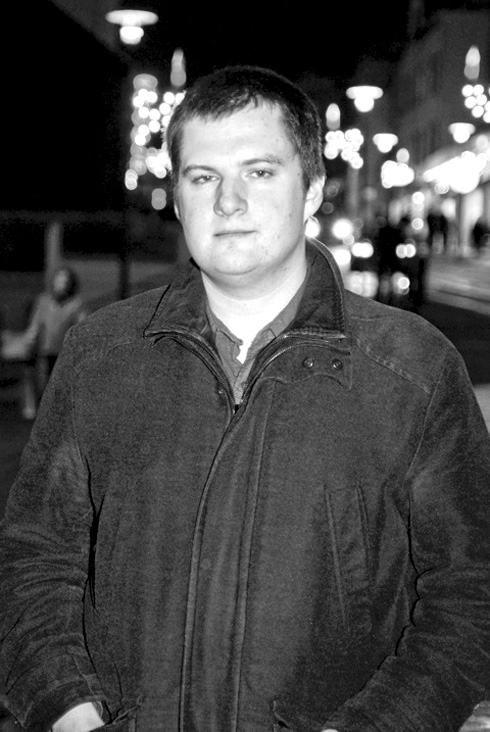 What I notice the most is that a lot of nationalism, even chauvinism, has been spreading over the country. One could see it relatively early in the year, and it becomes very apparent in regards to the whole Icesave debacle. The prevailing attitude may be likened to that of a person that breaks into a garage, steals a car and totals it, along with many others, on the way out, then claims that it’s all the fault of the garage’s lax security, and that the road rails weren’t strong enough.
What I notice the most is that a lot of nationalism, even chauvinism, has been spreading over the country. One could see it relatively early in the year, and it becomes very apparent in regards to the whole Icesave debacle. The prevailing attitude may be likened to that of a person that breaks into a garage, steals a car and totals it, along with many others, on the way out, then claims that it’s all the fault of the garage’s lax security, and that the road rails weren’t strong enough.
Hardheaded Icelanders have managed to present this idea that everything that happened is Gordon Brown’s fault, or the foreigners’ fault, or lax EEA regulations’ fault. I think this is a questionable interpretation of our woes. I think our only defence should be that we cannot really afford paying these amounts, or that they are simply too high. To maintain with a straight face that we are in no way responsible for Landsbankinn’s debt is absurd. We could ask ourselves what we would think if a British bank went heads up and the UK government announced every Brit’s savings account was safe while telling us we couldn’t get anything. It is very doubtful that we would take such declarations lightly.
I am flabbergasted by the party play that went on around the Icesave affair. I find it hard to believe that if any other party—except for maybe The Movement [formerly The Citizen’s Movement]—would be handling Icesave any different than the current government is. I feel the parties that filibustered and opposed the deal the hardest are just trying to score political points, which is understandable to a point. Still, nobody is going to play hardball with the international community on this one. We have had some insights into our international ranking, with our failed bid for the UN Security Council. It is… very poor. It is perhaps understandable that people would initially react by claiming that the world is being mean to us, and we hate it anyway, but it’s not likely to go on forever. Perhaps Iceland will be like the US post-9/11, we’ll see a few years of harsh reactions before settling down into sanity anew.
If we go in the opposite direction, however, I am very afraid. I sometimes worry about things like the EEA agreement, not that the members will oust us, but that say Icesave goes wrong and we wind up in a business war. A large part of our economy is based on interactions with other nations, and they could absolutely squeeze us dry if that were in their interest.
Looking at 2009 from my perspective, being a right-winger—and a pro-EU one at that—there aren’t many things to celebrate. Of course, we did apply for membership and I do applaud that, but it doesn’t seem like our application is faring well at the moment. These guys, Davíð Oddson and his friends, they played their cards well at the Independence Parties’ latest national convention and have, if anything, tightened their grip on the party. While their leadership is not direct, and not unquestioned, I do believe that the editor of Morgunblaðið has a lot to say about what goes on in the party. This is my estimate of the political climate on the right wing.
Buy subscriptions, t-shirts and more from our shop right here!

